Industry: Libyan Industrial Policy — 30% of GDP by 2030
Suleiman Ali Al-Taif Al-Fitur, Minister of Industry of Libya
Regarding our plan for industry, the Ministry of Industry has a vision that is to focus on the industrial opportunities in mining in order to raise the country’s GDP; by 2030 we want to increase our contribution to Libyan GDP to 30%.
Interview with Suleiman Ali Al-Taif Al-Fitur, Minister of Industry of Libya
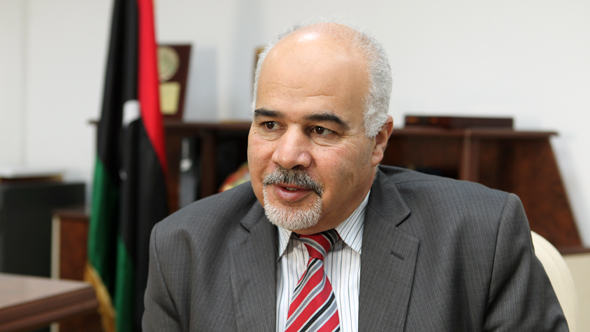
Regarding our plan for industry, the Ministry of Industry has a vision that is to focus on the industrial opportunities in mining in order to raise the country’s GDP. Libya is relying only on oil and yet the oil which has been refined here doesn’t cover the domestic needs so we still need to import some oil products or some fuel for our automobiles and also further gasoline from other sources. We need to diversify our economy’s supplies.
Actually we want to open the area for local and foreign investors. The Ministry of Industry is focusing on adjusting the investors and companies’ roles in order to convince and attract investors. We had some other targets which we need to review and we also need to evaluate the existing factories and industries. Shortly we will release an enquiry for the international firms linked to these activities. As everyone knows the existing factories are either not making profit or need evaluation from the government or the owners of these mainly public sector companies in Libya are not very well in an economic point of view. We need to evaluate the economic, technical and environmental effect of these industries in order to promote the investments.
We have many factories that were owned by the previous regime and which are now fully stopped, some are not capable of covering their costs and the workers’ salaries.
We would also like to make public private partnerships for the operation of these factories. At the moment we have one enquiry for one factory which is the Tripoli Water company, we had some local investors and businessmen who wanted to start an operational and maintenance contract for this factory which was built recently but is facing some problems.
We have many factories that were owned by the previous regime and which are now fully stopped, some are not capable of covering their costs and the workers’ salaries. Transitionally the Ministry is paying the wages for this labour and we would like to utilise the private sector to carry out the operational maintenance and to upgrade these facilities in order to get them evolved and operable on a financial basis.
In which areas do you feel Libya can be competitive in terms of industry? Is it having ship building for example? In what areas can you be very competitive in comparison to the neighbouring countries for example?
Libya can be a great competitor in heavy industries, we have the example of the Misrata steel industry, we are competitive in cement, petro chemicals, refining, and power generation, for example solar and wind energy. This competitiveness needs to be based on the international standards in terms of the environment. Energy and labour are very cheap in Libya and there is a lot of room for investment in Libya.
There are also mines, we have raw materials for cement, and we also have iron ore in many places. 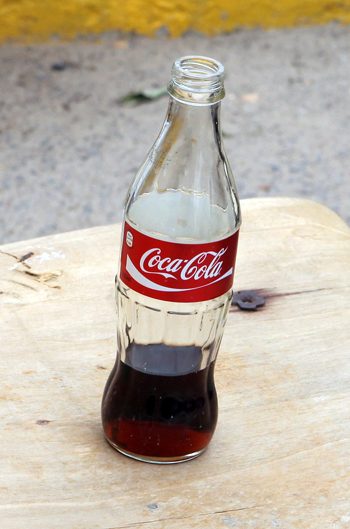 There are a lot of mines for marble and some precious stones, we also have sand silica in a high purity, and we have some salt lakes which are a source of many minerals. These are the points for competitiveness, principally the availability of resources. Shortly we will announce the investment map which will facilitate the investors in seeing where there are opportunities. It will guide the investors to know the availability of these raw materials, the services, roads, electricity etc. The map will facilitate the investors a great deal and will mean they won’t necessarily have to come here physically and look for guidance and answers to their questions.
There are a lot of mines for marble and some precious stones, we also have sand silica in a high purity, and we have some salt lakes which are a source of many minerals. These are the points for competitiveness, principally the availability of resources. Shortly we will announce the investment map which will facilitate the investors in seeing where there are opportunities. It will guide the investors to know the availability of these raw materials, the services, roads, electricity etc. The map will facilitate the investors a great deal and will mean they won’t necessarily have to come here physically and look for guidance and answers to their questions.
Can you tell us more about this investment plan, how many projects are there, what is the size of the investment etc.?
That will be decided by the investors themselves. We will provide the details about the raw materials, the locations, the services nearby, and the opportunities available, just for guidance. The sky is the limit. We need to focus on the private investors or public private partnerships, we have had a bad history with public investment – as I have said most of our factories are working and are not making profit or are harming the environment, so we need to make a 180 degree change gradually.
Firstly, the new investment has to be private but in terms of the existing industries we need to take care of our workforce that is working in this sector now in order to promote them and give them the opportunity to increase their salaries through real partnerships with the operating investors.
Currently, how much of the Libyan GDP does the industrial sector represent?
Currently apart from some food industries, we cannot say we are contributing to the GDP. Just some agricultural industries of wheat and some other pastry factories contribute, and also some private food and drink companies are contributing to the GDP. There are some private industries that have started exporting to Canada and the USA some very high quality products which is a very promising point for us. This will be set as a model for the other industries.
How would you like to promote local industry to make it competitive on the global scale?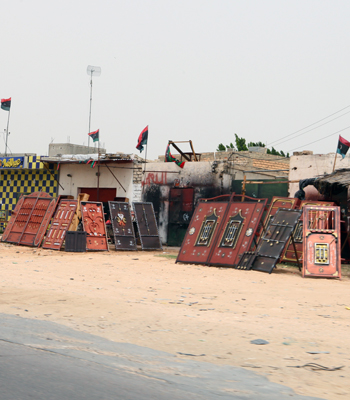
We are looking to promote these industries by potentially setting up some kind of support for the industries or for the firms, this will be in terms of promoting local industry mainly to minimise the effect of the imported goods. This support has to be gradually reduced until these companies are sustainable.
For new industries there are some exemptions from tax and import duties according to our investment law for about 5 years, which you can see is very supportive for industries that are setting up, and after 5 years they should be contributing to the country’s wealth by law.
Can you tell us more about these incentives; are we talking about subsidies and tax breaks?
There are tax exemptions for 5 years and also an exemption from custom duties on imported materials and spare parts to set up the industry. This is all according to an assessment of how well the industry is doing.
For the time being the energy costs here are very low but parliament is considering stopping the support in terms of energy, we have notified these factories to review the economic effect in order to take a proactive action. Thus we can continue with this support at a reasonable level on par with our neighbouring countries like Tunisia and Egypt. We will make this change gradually for the existing factories so that they can modify their processes.
Is the Ministry’s function now purely regulatory and law making, or are you also involved in some companies, for example managing some companies that you would like to privatise in the future?
We are managing companies that are publicly owned. We have 9 companies that are directly owned by the Ministry and some other companies belong to other sectors like the Ministry of the Economy and the Investment Fund. We are supposed to monitor these companies and the private companies, from a technical point of view, especially quality and production specifications. The other management is through the other sectors. 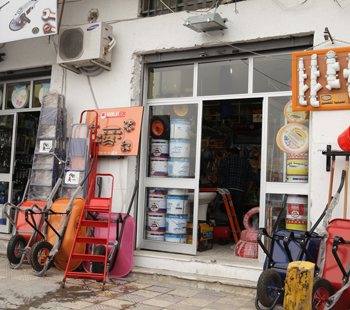
Is there some sort of competition between the companies that you own as the Ministry of Industry and the private sector or do you try to neutralise that?
There is no competition in that sense because the private sector is very well organised and it is well optimised in terms of the technical manpower and the production.
Whilst monitoring continues we do lack this, actually the culture created by the past regime whereby everyone was employed for life, meant that people were not conscious about what they produced. This culture is changing and we are relying on this change, in the future we don’t want the state or the Ministry producing and manufacturing, but merely governing, setting the rules and following the specifications as we are doing now with the private sectors.
Which companies does the Ministry own at the moment?
We have some food companies, like Tripoli and Misrata Milk and Beverages and Tripoli Water and Beverages; we also have Abu-Kammash chemical plant, Misrata steel company, in all there are 9 companies.
Do you know the combined value?
They are valuable from an assets point of view. I don’t know the exact figure but I would guess that the Abu-Kammash plant is worth 3 billion Libyan dinars, the steel company is worth 5 billion Libyan dinars and the other companies are worth a few million Libyan dinars.
Are you looking to privatise these companies in the future?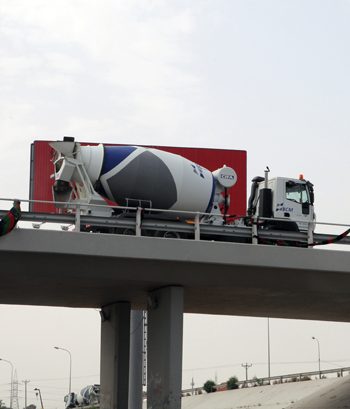
In the last few years Abu-Kammash has been offered for foreign investment in order to upgrade the plant, we have had some bidders but have been unable to conclude an offer. We may need to rebid for this investment.
Is it your long term strategy to privatise these companies?
Yes.
When do you think this will happen?
Well since the revolution, the privatisation of the Abu-Kammash plant has been halted because the international standards have stopped us from using mercury as a medium to electrolyse the salt from the brine. So we have had to close this plant until we find an electrolysis technique that is environmentally friendly. This will require about 18 months and 150 million Libyan dinars of investment initially. The factory is on hold now. We have some activities going on there but the sooner we get this factory functioning the better.
So the first step is to reorganise and revamp these industries and then to fully privatise them?
Yes. For example, the trucks and buses factory in Tajura which works as a partnership with Iveco Italy on a 25 – 75% basis is facing some problems regarding their overdraft and due to the lack of worker discipline in this factory, but we are taking some measures to get this unit working at optimal capacity.
The production lines are capable of producing about 14,000 trucks a year, and we have a proposal from Iveco to increase their share to 94% initially and then to more in the near future. We are taking some measures to resolve the problems, i.e. to pay the debt to the bank and to the spare parts vendors, and then we will call for a partnership with other investors including Iveco. We also have the Libya Trucks And Buses Co. ( TBCo ) company for which we will set up an operational maintenance contract, we already have some proposals from some bidders.
How many employees work for all the companies owned by the Ministry?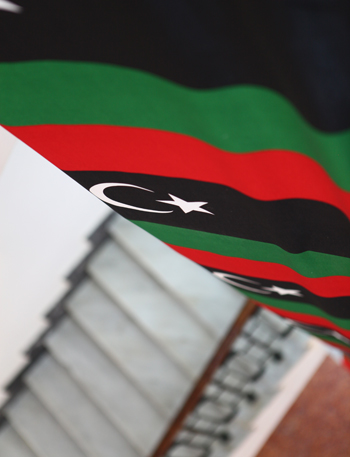
I can’t say overall but in the steel factory there are 7,000 employees, in the trucks industry there are 1,200, in the trailer industry there are 800 and Abu-Kammash has around 1,000 employees. The tractor factory is on hold now, it stopped a long time ago, many years ago in fact, however it has a very good infrastructure and a wide space so there are good opportunities to invest there. Our intention is to have the private sector getting involved in operating these factories, we will reach an agreement of how to share the profit and maybe gradually creating equity transfers to the private sector. The number of employees in these companies and the other food and beverage companies are around 12,000 employees; there are 12,000 families that are able to feel that they are partners and not always workers. They were affected by the previous culture, so we need to change to the other market philosophy and get a measure of the productivity.
Regarding the new laws, what are the main highlights?
The investment law was issued in 2010; there are some articles that might need to be adjusted. The commercial law is now under revision and we need to add some comments to the previous clauses with the view to widening the opportunities for competitiveness and to get the private sector deeply involved and free from limitations. Apart from the ethical and legal limitations, the sky should be the limit.
How much of the country’s budget in 2013 was allocated to industry?
We had about 300 million Libyan dinars allocated in the 2013 budget.
Is this number going to grow in the future?
Of course, in the existing budget we have some commitments to other sectors especially security for example, the Ministry of the Interior and the Ministry of Defence, Health and Education, which are the four main sectors requiring attention. 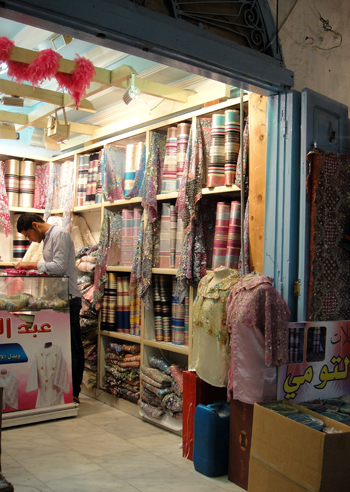 Although we asked for much more money we accept not being at the head of the queue for money. Development is directly linked to the security and the stability of the country.
Although we asked for much more money we accept not being at the head of the queue for money. Development is directly linked to the security and the stability of the country.
We couldn’t ask for money for projects that might not be implemented. Currently for some housing and infrastructure projects that we have our Minister of Planning is reviewing the existing contracts. There are 14,000 contracts worth about 130 billion Libyan dinars, we need these projects to be moving as this will stabilise us and send a good message to everyone that the country is starting to develop, to look for investment and to build infrastructure.
In the future, what is your vision for the industry sector’s contribution to the GDP?
As I said previously, we have to contribute to the GDP. My wish is to focus on exports and also we need to have real economic based industries and better utilisation of energy. We have large resources that are excellent in both diversity and quantity.
Would you be able to contribute 10%?
By 2030 we want to contribute 30%.
This requires a tremendous growth in the sector.
We also need to focus on our target for 2013 regarding SMEs. We intend to start up around 2,000 small and medium enterprise projects distributed in different areas, developing different areas and reducing the crowding of the capital and the main cities.
Are you going to finance this initiative?
We need to start evaluating the proposals from the developers for these projects. We need to start setting up the financing procedures for them. The SME projects can be set up very quickly, most will be skid mounted and will require large infrastructure. We have planning for about 40 industrial zones; around 10 are ready to go ahead in terms of infrastructure activities. Some of them have already started and we will distribute these zones for the industrial projects.
According to our parliament law we have to transfer our banking philosophy to Islamic funding, which doesn’t accept annual interest. We are focusing on the development bank which belongs to the industry. A few years ago they started to use Islamic funding procedures whereby the bank would be a partner with the project owner and it will transfer the equity at a certain time or set up some known percentage at the start. There are a lot of set procedures in Islamic banking and now there are many international banks that are opening with Islamic procedures. The development bank will take some time to set up these procedures and then we will draw up the action plan for initiating the projects and getting the loans and the payments.
Is this development bank a state bank or a private one?
It’s a state bank under the Ministry of Industry. All banks now have to abide by Islamic rules. Even dealing with individuals has to be done in the Islamic way. Interest will not appear in their calculations. Inter government banks and other public owned banks can continue as they are until 2015.